The mirror doesn’t lie—but it doesn’t tell the whole story either.
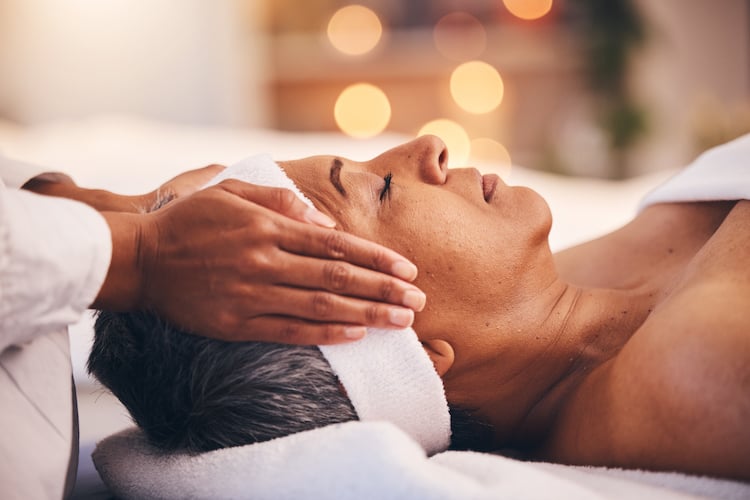
Aging can feel brutal when all you see are the things you’ve lost. Elastic skin, thick hair, firm muscles—it’s easy to obsess over what’s fading and overlook what’s growing stronger in its place. That grief is real. But so is the power of shifting how you see yourself.
These mindshifts don’t erase the hard parts. They simply offer a new lens—one that respects both the beauty and wisdom in your aging body.
1. Your body isn’t betraying you—it’s protecting you.
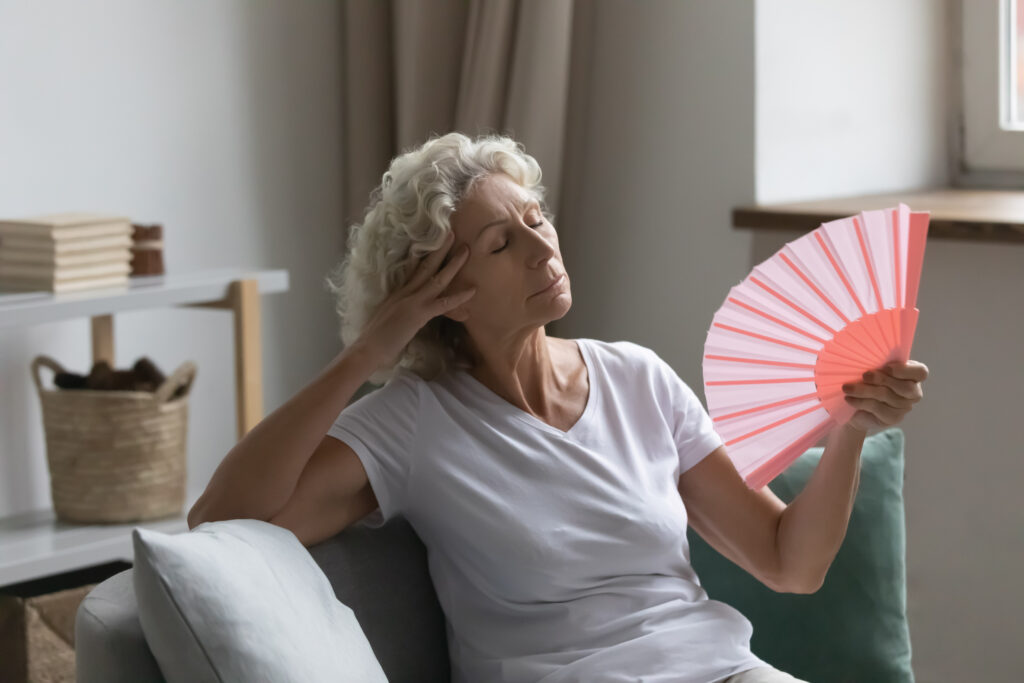
The stiffness, the sagging, the slower pace—it can all feel like your body is giving up on you. But that’s not what’s happening. In reality, your body is adjusting its rhythms to keep you functioning longer, not less. It’s choosing sustainability over speed.
Instead of seeing decline, start recognizing adaptation. Your joints aren’t weaker—they’re more cautious. Your energy isn’t missing—it’s being rationed, as mentioned by HelpGuide. These shifts aren’t signs of defeat; they’re proof that your body is working smarter for the long haul, even when it doesn’t look like it.
2. The things you notice are often things no one else sees.
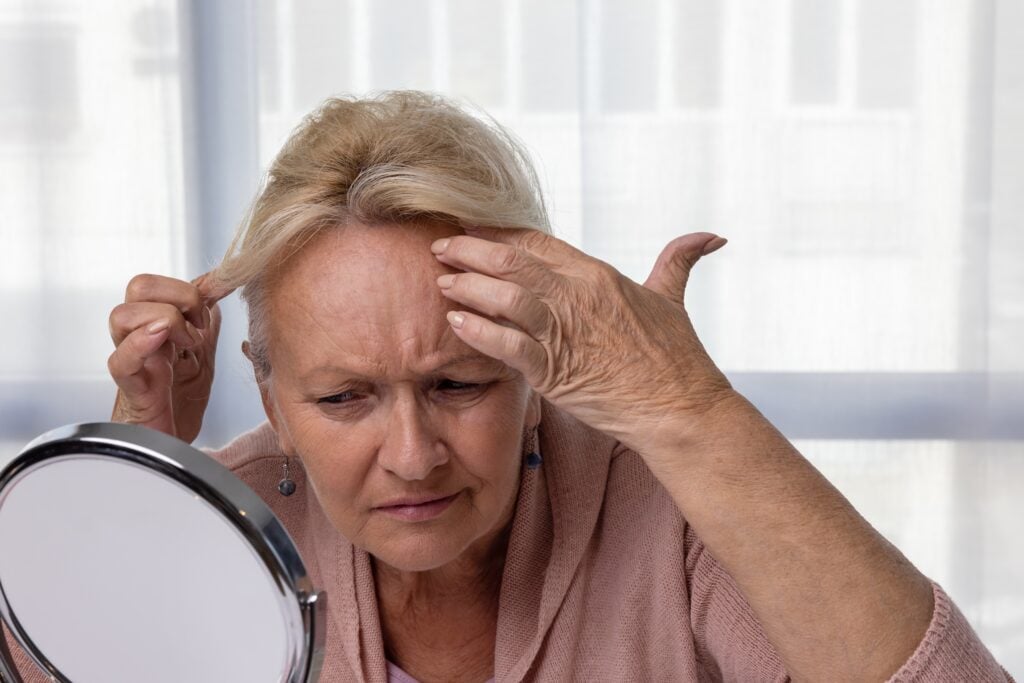
That wrinkle you’ve been fixated on? Most people haven’t clocked it. The tiny pouch at your waist? They’re not zooming in the way you are. Aging comes with hyper-awareness of the body because we’ve spent decades being told to monitor it like a hawk.
But others are far more focused on how you make them feel, not how tight your jawline looks, according to Psychology Today. When you shift attention away from microscopic self-judgment and toward connection, you’ll find your presence—not your appearance—is what actually turns heads.
3. You’re still allowed to feel attractive—just not by old rules.
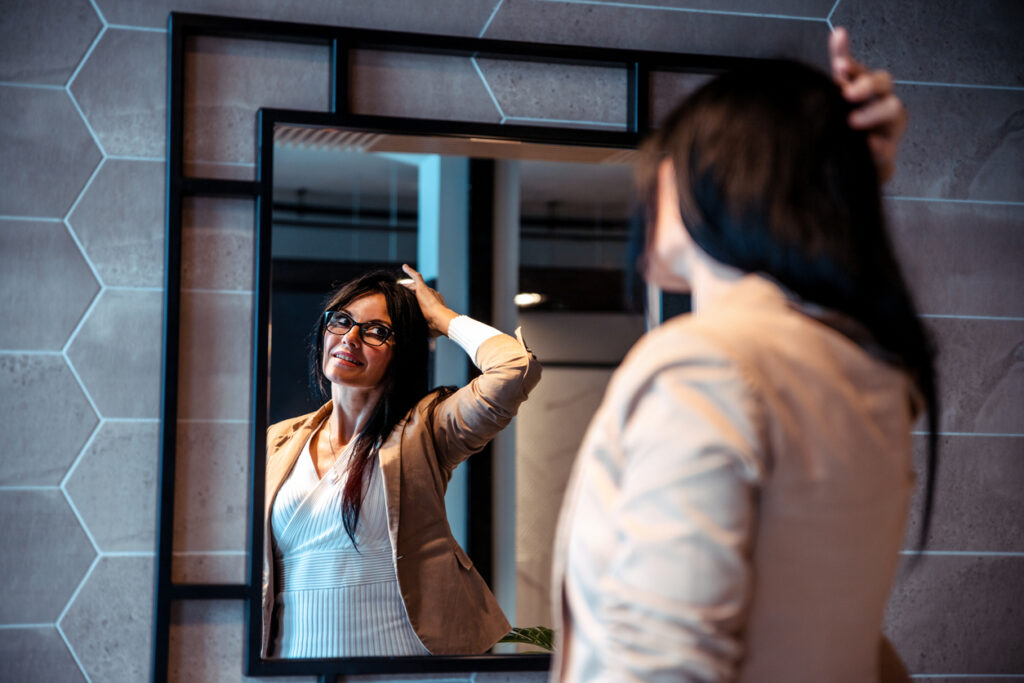
Attraction isn’t locked to youth. It evolves. What felt sexy at 25 isn’t the same as what makes you magnetic now—and that’s not a downgrade. It’s just a different frequency, as shared at TalkSpace. Confidence, curiosity, and kindness age incredibly well.
The problem is, we use outdated templates to judge today’s self. Let go of the belief that only taut skin or a perfect figure equals beauty. The new standard is how grounded you are in your own skin. And that kind of glow isn’t bound by age.
4. You’ve outgrown the performance of perfection.

The younger version of you may have spent a lot of energy trying to meet standards—society’s, family’s, or your own. But now? You get to let some of that pressure go. That’s not giving up. That’s leveling up.
You’ve earned the right to stop treating your body like a constant project. When you view the wrinkles, curves, and changes as badges of living—not flaws—you start seeing yourself through a kinder, more liberating lens. You’re not less than. You’re just done pretending perfection was ever the point.
5. You don’t owe anyone your youth to be worthy.
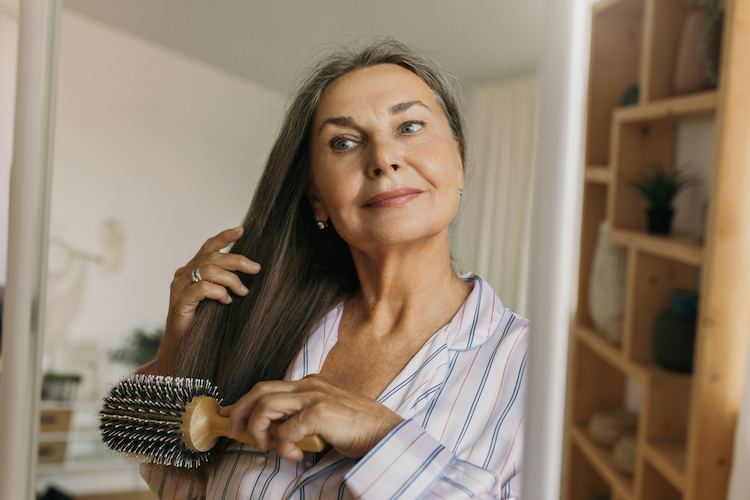
Aging can stir up shame, especially in a culture obsessed with staying young. But here’s the truth: your value has never been about being wrinkle-free or effortlessly fit. That was always an illusion sold to make us feel small—and spend big.
You don’t need to hustle to reverse time. Your worth isn’t something that declines annually. It’s built on how you show up, how you love, how you live. When you stop trying to “earn” space through appearance, you reclaim it as yours by default.
6. Aging frees you from constantly needing to prove yourself.

There’s a quiet kind of power in no longer needing to compete. You’re not trying to impress your boss, your ex, or the PTA moms anymore. That mental energy used to be tied up in how you looked walking into a room. Now, you get to walk in fully present.
It’s not that you’ve stopped caring—it’s that you’ve started caring about better things. Aging lets you release the exhausting weight of comparison. What takes its place is a more grounded sense of self that doesn’t beg for outside approval.
7. Your body still deserves pleasure, style, and celebration.
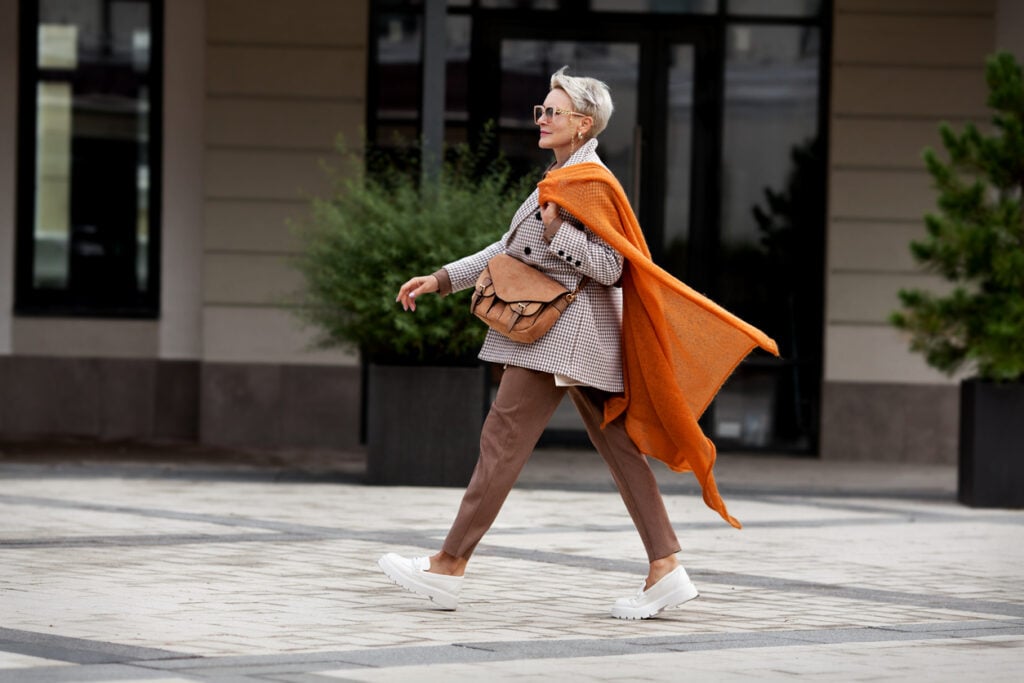
It’s easy to slip into utilitarian mode—dressing only for comfort, skipping skin care, avoiding intimacy—because you think “that stage” is over. But it’s not. You haven’t aged out of feeling beautiful, sexy, or lit up by color and texture.
Wear the dress. Book the massage. Buy the moisturizer that smells expensive. These aren’t shallow indulgences—they’re acts of affection toward your changing self. When you treat your body like it still matters, you remind it (and yourself) that it absolutely does.
8. The mirror doesn’t reflect your entire story.
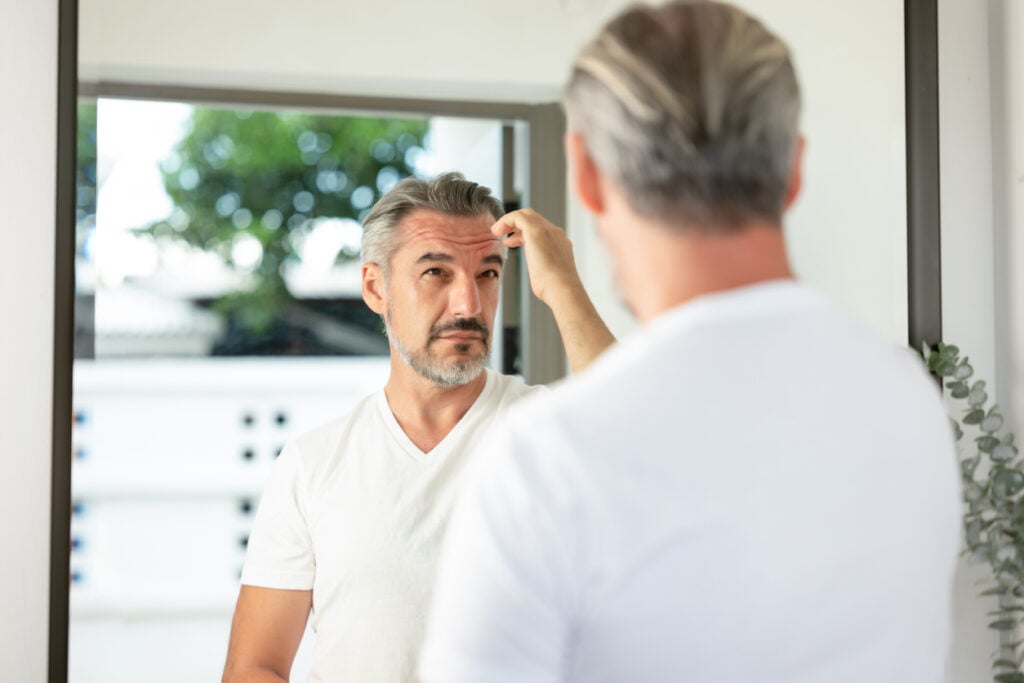
What you see in your reflection is one frame of the full film. It doesn’t show your resilience, your joy, your humor, or how you’ve held people together when everything else fell apart. It’s a sliver—not the whole.
If you only judge yourself by what’s in the mirror, you’re missing the best parts. The power of aging is in the layers you’ve added. That doesn’t show up in photos—but it radiates in every conversation, every decision, every damn day you get back up.
9. Comparison is a thief that ages everyone.

Scrolling through curated photos of 50-somethings with filters and Botox doesn’t inspire—it often deflates. But it’s a trap. Comparison makes us forget that we’re comparing real life to someone’s highlight reel, often enhanced by money and lighting.
When you step out of that loop, you start noticing what actually brings you peace. Comparison keeps you chasing—and that chase is exhausting. Aging more gracefully starts when you stop viewing yourself through someone else’s camera roll and start tuning into how you really feel.
10. You can still make peace with your body mid-journey.

Loving your body doesn’t require a grand epiphany or total acceptance overnight. Sometimes it starts with one small act—walking instead of sitting, buying something that fits now, or choosing not to speak unkindly about your own thighs.
Progress looks quiet. It’s forgiving yourself for past neglect and still showing up anyway. You’re allowed to have mixed feelings and still treat your body like it matters. That’s what real peace looks like: not perfection, but gentleness in motion.
11. Wrinkles, stretch marks, and gray hair mean you stayed.
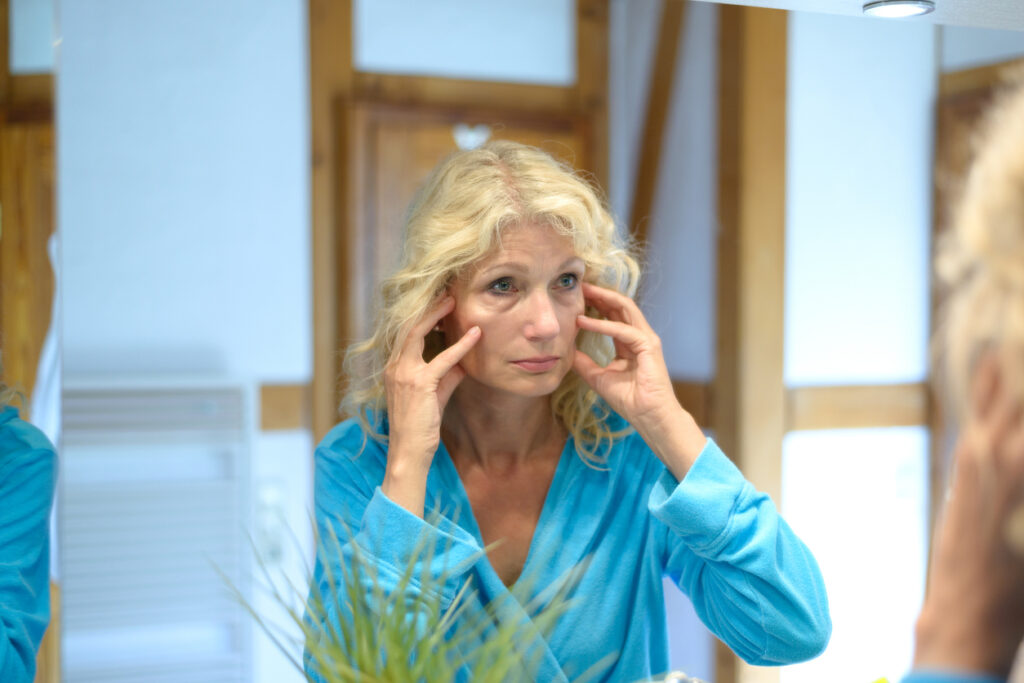
Each line and scar tells you one thing—you’ve lived. You stayed through heartbreak, sickness, anxiety, joy, and disappointment. Your body carried you the whole time. It didn’t abandon you. Even when you wanted to quit, it didn’t.
That shift from “flaws” to “evidence” changes everything. You’re not worn out—you’re well-traveled. Those physical signs of age aren’t something to erase. They’re proof that you’ve shown up for your own life—and you’re still showing up now.
12. The goal isn’t youth—it’s vibrancy.

Youth isn’t the only time people get to feel alive. Vibrancy isn’t locked to a number. It’s about connection, movement, curiosity, and purpose. That spark you’re chasing? It doesn’t require a flat stomach or flawless skin.
It comes from feeling aligned with who you are now. And that version of you—gray hairs, creaky knees and all—can still laugh deeply, love wildly, and walk into a room with presence. Vibrancy ages beautifully when it’s fed by self-respect instead of self-doubt.
